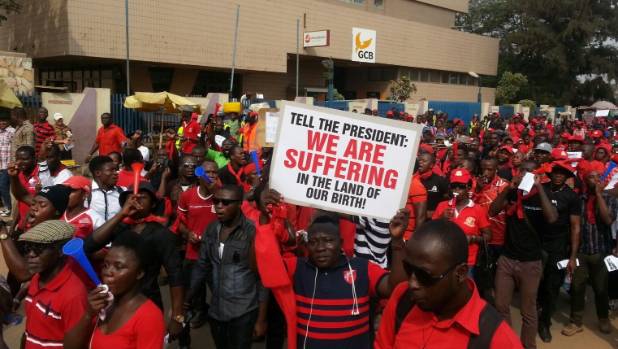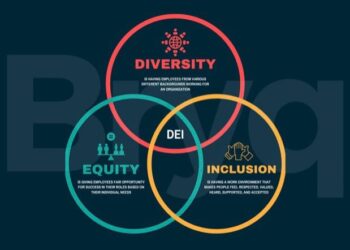Ghana is confronted with a pressing challenge that demands immediate and sustained attention: youth unemployment. With more than half of its population under the age of 25, the country finds itself at a crossroads. While this youthful demographic represents an enormous potential for national growth, it also poses a risk if their energy, skills, and aspirations remain untapped. At present, the latter appears to be the reality for many young Ghanaians.
According to data from the Ghana Statistical Service, the youth unemployment rate stands at approximately 14.7 percent, with urban centers recording even higher figures. The numbers tell only part of the story. Behind these statistics are thousands of graduates from universities, polytechnics, and technical schools who find themselves unable to secure meaningful employment. Many are underemployed in jobs that do not match their skills or ambitions, a situation that breeds frustration, disillusionment, and a sense of exclusion from the nation’s progress.
The roots of this crisis are complex. One key factor is the persistent gap between educational training and the requirements of the labor market. Ghana’s education system, though gradually improving, continues to lean heavily towards theory rather than practice. Too often, students graduate with certificates but without the hands-on skills that employers seek. The mismatch becomes more glaring in a fast-changing economy where digital literacy, problem-solving, and entrepreneurial ability are increasingly vital.
The private sector, which should be the engine of job creation, has also been unable to fully absorb the growing labor force. High operational costs, bureaucratic bottlenecks, and limited access to financing constrain its capacity to expand and employ more young people. Compounding the problem is the predominance of the informal sector. While it provides some level of employment, most of these jobs are poorly regulated, low-paying, and without social protections. Young people employed in this space often remain trapped in cycles of vulnerability, unable to transition into stable and fulfilling careers.
The consequences of youth unemployment ripple through society in visible and invisible ways. Economically, it represents a colossal waste of talent and potential, slowing down growth and innovation. Socially, the lack of opportunities pushes some young people towards crime, drug abuse, and anti-social behavior. Others suffer from depression, anxiety, and other mental health challenges as they grapple with unfulfilled aspirations. The situation has also fueled the phenomenon of brain drain, as Ghana’s most skilled and ambitious youth seek greener pastures abroad, depriving the country of much-needed innovation and new ideas.
Clearly, the stakes are high. If Ghana is to transform its demographic profile into a dividend rather than a disaster, urgent action is required. The solutions must be bold, coordinated, and forward-looking.
First, there is the need for a decisive investment in skills training and technical education. Technical and Vocational Education and Training (TVET) should be repositioned as a central pillar of national development, not a fallback option. Government and private sector partnerships must direct resources into equipping young people with practical skills in high-demand sectors such as agriculture, renewable energy, manufacturing, and information and communication technology (ICT). These areas have the potential to not only create jobs but also drive industrialization and self-sufficiency.
Secondly, entrepreneurship support must move beyond rhetoric into tangible, sustainable action. The National Entrepreneurship and Innovation Programme (NEIP) and other youth-focused initiatives must be adequately funded, efficiently managed, and monitored to ensure they create lasting businesses rather than short-lived ventures. Young entrepreneurs need mentorship, access to credit, and exposure to markets if they are to generate jobs for themselves and others.
Equally important is curriculum reform at universities and polytechnics. Academic institutions must regularly review their programmes to align with the realities of the job market. Incorporating more opportunities for internships, apprenticeships, and industry partnerships will ensure that students graduate with both knowledge and experience. Furthermore, the integration of digital skills across disciplines is no longer optional. From medicine to media, agriculture to law, the future of work is digital, and Ghana’s youth must be prepared to compete.
Finally, Ghana should embrace the opportunities within the digital economy. The rapid growth of freelancing, e-commerce, and tech start-ups offers new avenues for employment that transcend geographical boundaries. With the right policies, infrastructure, and training, young Ghanaians can provide services to clients around the world, turning their skills into global commodities.
Youth unemployment in Ghana is not just an economic concern; it is a national crisis with social and political implications. Addressing it requires a unified commitment from all stakeholders—government, industry, academia, civil society, and the youth themselves. The young people of Ghana are brimming with creativity, energy, and determination. What they lack is opportunity, guidance, and a system that empowers rather than sidelines them.
If Ghana can channel its resources into skills development, innovation, and entrepreneurship, it can transform this challenge into an opportunity. The country has within its borders a generation capable of driving economic transformation, shaping new industries, and propelling Ghana into a future of prosperity. But the time to act is now. Every year of inaction deepens the crisis and wastes the promise of millions of young lives.
The youth are Ghana’s greatest resource. Harnessing their potential is not a choice – it is the only path forward.
By: Nathaniel Darko










Discussion about this post